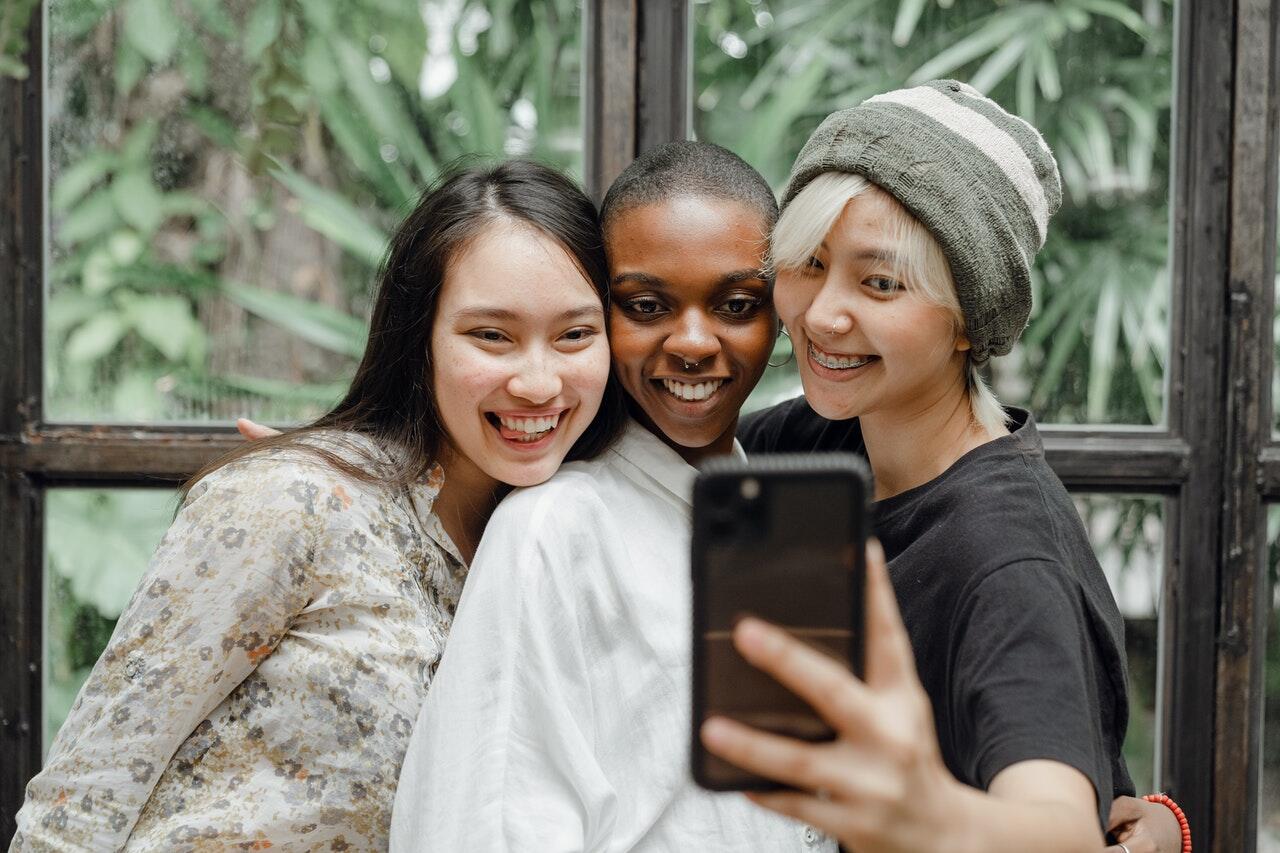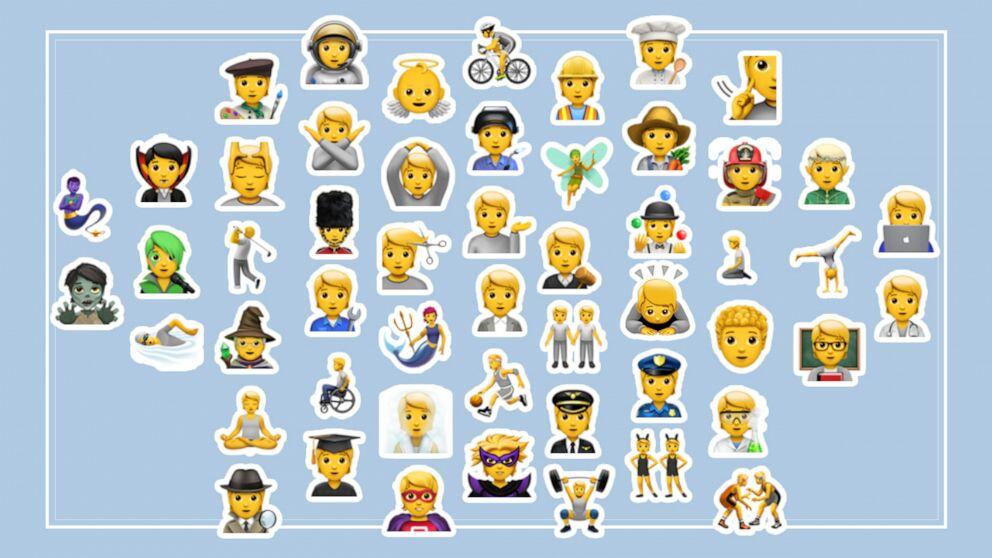Generation Z, individuals born between 1996 and 2010, is the demographic cohort following millennials and preceding Generation Alpha. Their identity has been shaped by significant developments, including the rise of the digital era, environmental concerns, economic changes, and the COVID-19 pandemic. Often referred to as "digital natives," Gen Z is the first generation to have grown up with the internet as a constant presence. This has given rise to a distinct lexicon, featuring expressions and terms that may seem unfamiliar or cryptic to those outside this group.
While language is always evolving, slang in particular tends to transform rapidly. Every generation develops its unique vocabulary, with new terms emerging faster than many can adapt. The rise of platforms like TikTok and other social media outlets has accelerated the spread of this Gen Z slang, including emojis that convey unique meanings, making it easier for new expressions to gain widespread use. Failing to stay updated with these changes can lead to confusion.
Understanding the meaning and origins of key Gen Z terms is crucial for those seeking to familiarize themselves with current slang and avoid seeming outdated—at least until the next wave of trends emerges.

Who are the Gen Z?
Like every generation, Gen Z's behaviors have been shaped by the conditions they grew up in. This cohort has come of age amidst widespread concerns over climate change, the upheaval caused by the COVID-19 pandemic, and growing fears of economic instability.
The oldest members of Gen Z were born at a time when the internet was becoming widely accessible, earning them the label of "digital natives," as they are the first generation to have been raised with the internet integrated into daily life.

Digital Natives
Despite differences within this diverse generation, several common traits have emerged. As the first true digital natives, Gen Z is highly connected, with much of their social and economic life taking place online. In Asia, for example, Gen Z members typically spend six or more hours each day on their phones. They are known for working, shopping, forming relationships, and engaging with communities online, often shifting between websites, apps, and social media platforms, all of which contribute to their digital ecosystem. This generation approaches the internet as their primary source of information, from reading news to checking product reviews before making purchases.
Unique Relations with Social Media
Gen Z's relationship with social media differs from previous generations in that they curate their online personas more carefully. While they maintain a strong digital presence, many also prefer a more controlled, often anonymous, interaction with the internet. Social media trends have also influenced this generation, with a focus on creating personalized feeds and limiting their public digital footprint, even as they consume content at a high rate.
The TikTok Generation
Video-sharing platforms, especially TikTok, have seen a significant rise with the emergence of Gen Z. This generation constitutes 60% of TikTok's over one billion users, and the platform has become a cultural touchstone, shaping trends, sentiments, and behaviors. Gen Z is drawn to niche online communities that share their passions and interests, ranging from gaming to K-pop. These online spaces allow them to connect with both people they know in real life and those they meet solely through digital interactions.
Idealist to the Core
In addition to their digital habits, Gen Z is also distinguished by a generally idealistic outlook. As part of a new wave of "inclusive consumers," they tend to support causes related to social justice, environmental sustainability, and diversity. More than any other generation, Gen Z advocates for actions that combat climate change and promote equity across all areas of society. This generation demands accountability from companies, favoring businesses that adopt sustainable practices and offer opportunities to underrepresented communities. Their collective values reflect a strong commitment to purpose-driven living and social progress.
Learn with an english teacher on Superprof. They can help explain slang, tone, and modern usage clearly.
Most Common Gen Z Lingo Words [2024]
Generation Z, or Gen Z, has developed its unique lexicon, largely shaped by the digital age and social media. With platforms like TikTok, Instagram, and Twitter at the forefront, Gen Z slang has rapidly evolved, influencing online conversations and even crossing over into mainstream culture. Below are some of the most common Gen Z lingo words in 2024, along with their meanings:
| Word | Meaning |
| Slay | Meaning: To do something exceptionally well or to look fantastic while doing it. Example: "You slayed that presentation!" Context: Often used as a compliment for someone excelling in an activity, whether it's about fashion, performance, or general actions. |
| No Cap | Meaning: No lie, or to indicate that something is true or serious. Example: "That movie was amazing, no cap." Context: Derived from "capping" (meaning lying), this phrase emphasizes honesty and sincerity. |
| Bet | Meaning: Used to confirm agreement or to say "okay" or "yes" in a confident manner. Example: "Are we going to the party tonight?" "Bet!" Context: Similar to saying "sure" or "definitely," it often signals enthusiasm or acceptance of a plan or idea. |
| Rizz | Meaning: A term for charm or ability to attract others, especially in a romantic context. Example: "He’s got major rizz; everyone likes him." Context: Short for "charisma," this term is often used to describe someone’s flirtation skills or general likability. |
| Sus | Meaning: Suspicious or shady behavior. Example: "That guy's been acting kinda sus lately." Context: Popularized through gaming communities, particularly "Among Us," where players accuse others of suspicious actions. It's now used to point out odd or questionable behavior. |
| Mid | Meaning: Mediocre or average, not great but not terrible. Example: "That movie was mid at best." Context: Used to downplay something that doesn't meet high expectations or standards. |
| Drip | Meaning: Refers to someone’s stylish or fashionable appearance. Example: "Check out his drip; those sneakers are fire." Context: Originating from hip-hop culture, "drip" signifies high-quality fashion, especially streetwear. |
| Lit | Meaning: Exciting, fun, or excellent. Example: "Last night’s concert was lit!" Context: Commonly used to describe an event or situation that is lively or thrilling. |
| Stan | Meaning: To be an enthusiastic or obsessed fan of someone or something. Example: "I stan that artist so much; they’re amazing." Context: Originally derived from the Eminem song “Stan,” the term has come to mean extreme admiration or support for a celebrity, brand, or hobby. |
| Savage | Meaning: Describes someone who is brutally honest or acts with boldness and confidence. Example: "She told him off in front of everyone, that was savage." Context: Often used to describe unapologetically straightforward people, to the point of being impressive or entertaining. |
| Finsta | Meaning: A private, secondary Instagram account where users post more casual or less polished content. Example: "I only post silly pics on my finsta." Context: The term comes from "fake Instagram," used to refer to an account where users can be more authentic or carefree, usually shared only with close friends. |
| Ghosting | Meaning: Ending communication abruptly and without explanation, usually in dating or friendship contexts. Example: "He ghosted me after the second date." Context: This term has become common with the rise of online dating and social media, where someone simply stops replying to messages or vanishes from contact. |
| Boujee | Meaning: Luxurious, fancy, or high-end, often with a bit of snobbery. Example: "We’re going to that boujee new restaurant tonight." Context: Derived from "bourgeoisie," it’s now commonly used to describe anything considered upper-class or overly stylish. |
| Glow Up | Meaning: A significant positive transformation in someone’s appearance, skills, or life overall. Example: "She had a major glow up after high school." Context: Often used to describe someone’s personal growth or improved appearance over time, particularly during formative years. |
| FOMO | Meaning: A significant positive transformation in someone’s appearance, skills, or life overall. Example: "She had a major glow-up after high school." Context: Often used to describe someone’s personal growth or improved appearance over time, particularly during formative years. |
| Cheugy | Meaning: Something that is out of style or trying too hard, especially in a way that is perceived as outdated or overly conventional. Example: "Wearing skinny jeans now feels so cheugy." Context: Used to mock behaviors or styles that are no longer trendy, often in contrast to Gen Z’s preferred aesthetics. |
| GOAT | Meaning: Greatest of All Time. Example: "Serena Williams is the GOAT of tennis." Context: An acronym used to designate someone or something that is the best in their field or category, often in sports, music, or entertainment. |
| Main Character Energy | Meaning: The attitude of seeing oneself as the protagonist of a story or situation. Example: "She walks into every room with major main character energy." Context: A self-empowering phrase that refers to someone who carries themselves with confidence and takes charge of their life as if they’re the focal point. |
| Flex | Meaning: To show off, often material possessions or accomplishments. Example: "He’s always flexing his new sneakers on Instagram." Context: Originating in hip-hop, “flex” refers to boasting or flaunting something, especially wealth or social status. |
| It's Giving | Meaning: Used to describe the vibe or impression something or someone gives off. Example: "That outfit? It’s giving 90s nostalgia." Context: Often followed by a description, this phrase is used to comment on the essence or overall feel of something, whether it’s positive or negative. |
How To Understand Gen Z Text language?
Gen Z text language, often referred to as "internet slang," is a dynamic and evolving form of communication that blends abbreviations, emojis, pop culture references, and meme-inspired expressions. Understanding it can feel like learning a new dialect, but here are some steps to help you decode it effectively:
Key Features of Gen Z Text Language
- Abbreviations & Acronyms
- Examples:
- IMO = In My Opinion
- TBH = To Be Honest
- IDK = I Don’t Know
- RN = Right Now
- Examples:
- Shortened Words
- Gen Z often shortens words for convenience:
- Sus = Suspicious
- Fam = Family or close friends
- Cringe = Embarrassing
- Gen Z often shortens words for convenience:
- Emojis as Sentiments
- Emojis are used for emotional cues or irony. For example:
- 🥲 = Relatable sadness
- 💀 = "I'm dead" (meaning something is extremely funny)
- Emojis are used for emotional cues or irony. For example:
- Pop Culture References
- References to memes, TikTok trends, or viral phrases are common. Example:
- “Sheesh” = Used to express amazement or hype.
- "No cap" = No lie, or "I'm serious."
- References to memes, TikTok trends, or viral phrases are common. Example:
- Keyboard Quirks
- Intentional spelling mistakes or excessive punctuation for emphasis:
- “yasss” = Yes, enthusiastically.
- "okayyyy" = Elongated for exaggeration.
- Intentional spelling mistakes or excessive punctuation for emphasis:
Tips to Understand Gen Z Texting
Learn Popular Slang
- Keep up with trends through platforms like Urban Dictionary or TikTok. These sites often explain new slang and how it's used.
Context Matters
- Gen Z slang can vary based on the conversation's tone or platform (e.g., Instagram comments vs. group texts).
Observe Emojis
- The combination of words and emojis often clarifies the meaning. For example:
- "I can't 😭" = Overwhelmed by humor or emotion.
Meme and Social Media Knowledge
- Following Gen Z's favorite platforms (TikTok, Instagram, Snapchat) will help you stay in touch with the cultural references they use.
Ask for Clarifications
- If you’re unsure about a phrase, don’t hesitate to ask someone from Gen Z. They’re usually happy to explain their language.
An online english tutor on Superprof can help you keep up with evolving Gen Z language.
10 Popular Emojis Used by Gen Z with Meanings [2024]

Emojis have become a vital aspect of digital communication, particularly for Generation Z. With the ability to convey emotions, reactions, and nuances that words sometimes fail to express, emojis serve as a language of their own. Here are 10 popular emojis frequently used by Gen Z in 2024, along with their meanings.
😭 Loudly Crying Face
- While this emoji traditionally signifies extreme sadness, Gen Z has repurposed it to express laughter or being "moved" by something. It is often used in a humorous context to indicate something is so funny that it brings tears of laughter. In some cases, it can also imply overwhelming emotions, such as when experiencing something cute or heartwarming.
🫠 Melting Face
- A newer addition to the emoji lineup, the melting face has quickly become a favorite among Gen Z. It typically conveys awkwardness, embarrassment, or feeling defeated. Its versatility also allows it to be used in situations where someone feels overwhelmed or cringe-worthy but still tries to maintain a sense of humor.
💀 Skull
- The skull emoji has evolved from its literal meaning to symbolize something hilariously funny. Gen Z uses it as a replacement for “I’m dead,” a slang term that indicates something is so funny that it metaphorically "kills" the person with laughter. It has become a staple in conversations about humor, jokes, or ridiculous situations.
✨ Sparkles
- Often used to emphasize something positive, the sparkles emoji adds a touch of magic or excitement to a statement. It can highlight something extraordinary, whether it’s a compliment, a cool event, or even self-expression. Gen Z might say, “Feeling ✨amazing✨ today,” to give extra emphasis on a positive vibe.
🔥 Fire
- The fire emoji signifies something impressive, exciting, or “on fire” in a good way. It is often used to describe people, performances, or moments that are cool or exceptional. For example, "Your outfit is 🔥" suggests that the person looks amazing. It’s a staple emoji for compliments and hype.
🫶 Heart Hands
- This emoji has gained popularity for showing support, love, or appreciation. The heart-hands gesture signifies care and affection in a non-romantic sense, and Gen Z frequently uses it to express gratitude, kindness, or community spirit. It’s often used in replies to messages of encouragement, positive feedback, or shared accomplishments.
🙃 Upside-Down Face
- The upside-down face emoji is a symbol of sarcasm, irony, or passive-aggressive humor. Gen Z uses it to imply that they are saying something in a playful or self-deprecating way. It’s often included when someone feels that a situation is awkward, annoying, or ironic but chooses to react with lightheartedness.
😮💨 Face Exhaling
- This emoji, which shows a face exhaling, is used to express relief, frustration, or exhaustion. Gen Z has adopted it in various contexts, ranging from finally completing a task to expressing a "done with this" attitude. It encapsulates the feeling of being worn out but also relieved that something is over.
👀 Eyes
- The eyes emoji has a wide range of meanings depending on the context, but it generally signals interest or curiosity. Gen Z often uses it to indicate that they are watching or paying attention to something, whether it’s gossip, a developing situation, or a trending topic. For example, it can be a subtle way of saying "I see you" or "What's going on here?"
🤡 Clown Face
- The clown face emoji is used to express self-deprecating humor or when someone feels foolish. Gen Z often uses it in situations where they acknowledge making a mistake or being tricked. It’s also used to call out clownish behavior or to mock someone (including oneself) for doing something absurd.
Gen Z Language Is Here To Stay!
Gen Z slang reflects the values, culture, and digital environments that define this generation. The influence of social media platforms, online communities, and rapid communication has led to the development of a language that is constantly evolving. By 2024, these words and phrases have become deeply embedded in Gen Z's interactions and expressions, and staying updated with these terms can help bridge generational gaps and ensure better communication with this digitally fluent cohort.
For Gen Z, emojis are more than just colorful images; they are essential tools for adding emotional depth and nuance to digital conversations. As the digital landscape continues to evolve, emojis remain an important part of expressing feelings, moods, and reactions in the fast-paced world of online communication. The meanings of these symbols are fluid, often shifting with trends and cultural context, and Gen Z continues to lead the charge in how they are used.
Understanding Gen Z text language requires immersion in their communication style. Spend time on platforms like TikTok, Instagram, or even Reddit to observe how words, emojis, and trends are used in context. Over time, you'll naturally pick up the meanings and nuances.
Summarise with AI:















